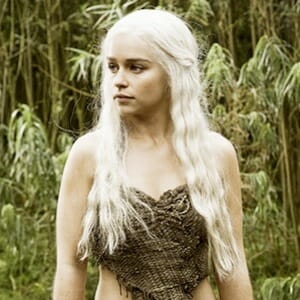Game of Thrones Episode 4: “Cripples, Bastards, and Broken Things”

For a show that wasn’t supposed to attract female viewers, Game of Throne’s strongest characters are its women. In the fourth episode of HBO’s new series, we see Princess Daenerys Targaryen (Emilia Clarke) finally take control of her life.
-

-

-

-

-

-

-

-

-

-

-

-

-

-

-

-

-

-

-

-

-

-

-

-

-

-

-

-

-

-

-

-

-

-

-

-

-

-

-

-








































